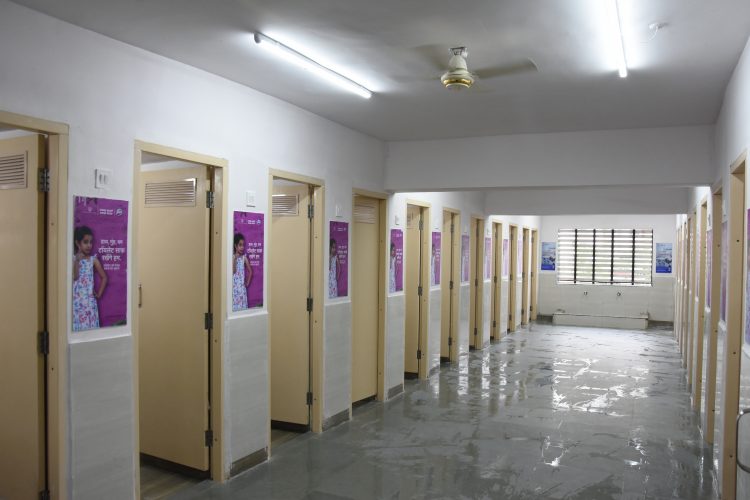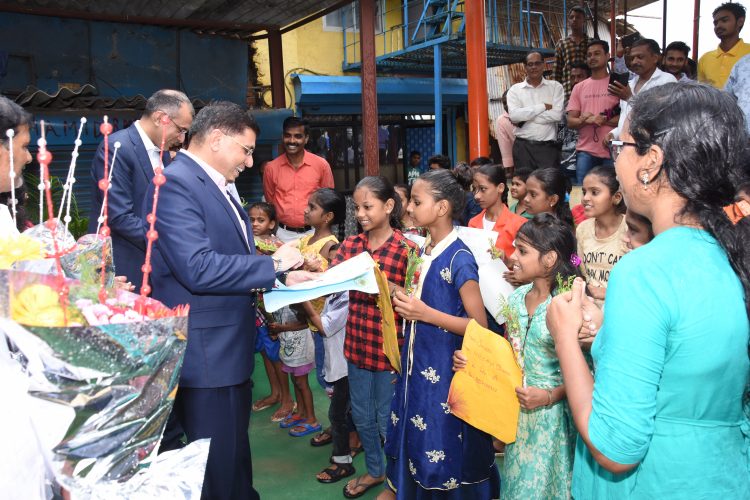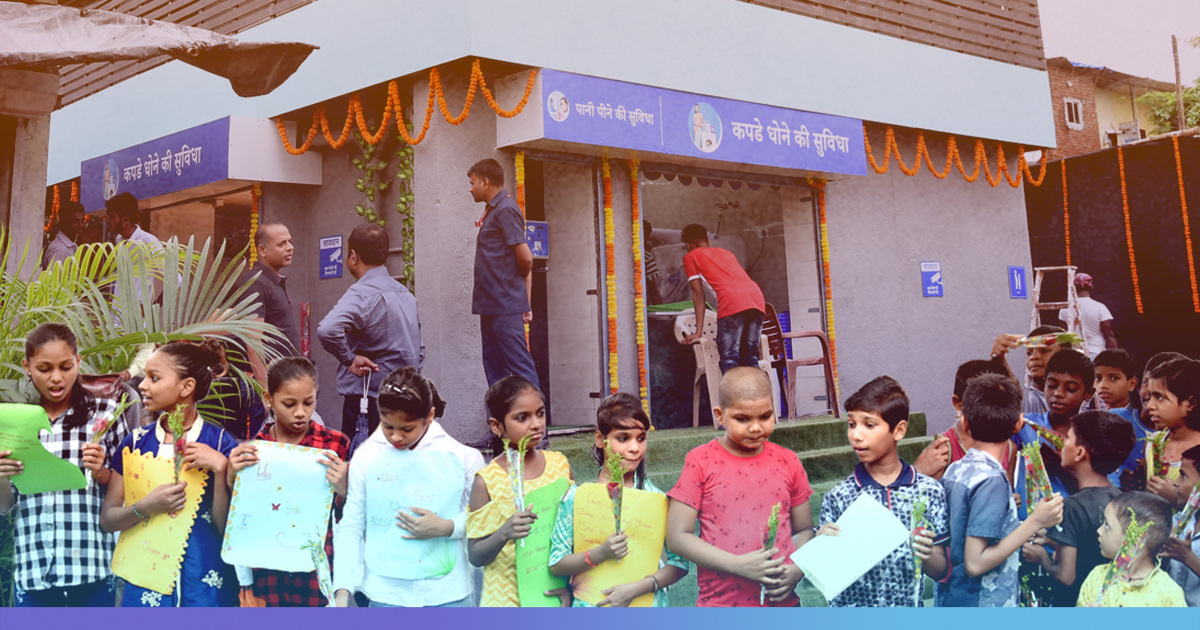A significant part of India dwells in slums. With accelerated urbanization and a population of approx 1.5 billion, Indian cities are under immense pressure. As a result, the slums are growing along the periphery which in turn creates a challenge for communities to access clean water, hygiene and basic sanitation resources.
The lack of basic sanitation and safe drinking water is not just the cause of diseases such as cholera and diarrhoea, but also a leading cause behind a number of preventable deaths.

Introducing ‘Suvidha’
We know that simple changes can make a big difference viz. washing hands with soap, providing safe drinking water and building and maintaining clean toilets. Suvidha by HUL is a step in the direction of driving this behavior change.
It is a purpose-built, sustainable community centre which addresses the sanitation, hygiene, drinking water, and Laundry needs of low-income urban households who face severe challenges due to lack of infrastructure and facilities. The first center was established in 2016 in Ghatkopar’s Azad Nagar (one of Mumbai’s largest slums) and has successfully managed to transform the lives of Azad Nagar residents. In August 2019, a second center has been launched in Malad. This initiative by HUL helps make the slums more habitable to the people living there.
The new Suvidha centre in Malad
Stemming from the company’s purpose of making sustainable commonplace, HUL’s initiative ‘Suvidha’ (in partnership with HSBC), continues to create impact with its recent opening in Malad. The new center too holistically addresses the issues of poor personal hygiene, lack of clean drinking water, and poor sanitation and provides services. Residents of the community now have access to clean drinking water, hygienic toilets and modern laundry facilities. All these services are available at a nominal cost to ensure that more and more people avail them.

Unilever Suvidha Center for Environment
With an increase in global population, the demand for water is expected to rise exponentially. In an already scarce availability or unavailability of clean water in many areas, the need to conserve and recycle water becomes pressing. HUL, considering the importance of water management, has designed the Suvidha Centre based on a circular economy approach to water. The design is based on a circular economy approach and uses innovative technology to recycle water from handwashing facilities & laundry to provide water for flushing toilets.
In addition, the all-new ‘Suvidha’ community centre, in partnership with UNDP, is now also providing access to dry waste collection point establishing a decentralised Dry Waste Collection Centre. These centres will collect and store dry waste that shall be further sent for recycling purposes.
Employment opportunity
Besides saving lives by addressing the WASH crisis among slum dwellers, HUL through its project is also enhancing livelihoods. As part of the project, they are given paid employment opportunities to run, clean and manage the centre.
‘Suvidha’ for women
One of the most adverse and underrated effects of lack of availability of clean water, toilets, bathrooms, and washing machine facility is the fact that the burden of unpaid domestic labour typically falls upon women of the household. ‘Suvidha’ centres have been designed keeping the safety of women in mind by providing separate entrances for them and by keeping the toilets open even in the night. The establishment of washing machines and access to clean water saves them the abundant time that they can rather invest in education or doing something that can be monetised.
The Logical Indian applauds the efforts of HUL by putting together an actionable initiative towards solving the Global WASH crisis, the most pressing challenge of our time. The opening of ‘Suvidha Community Centre’ is not just remarkably saving lives but is also creating livelihood opportunities and reducing environmental impact.











